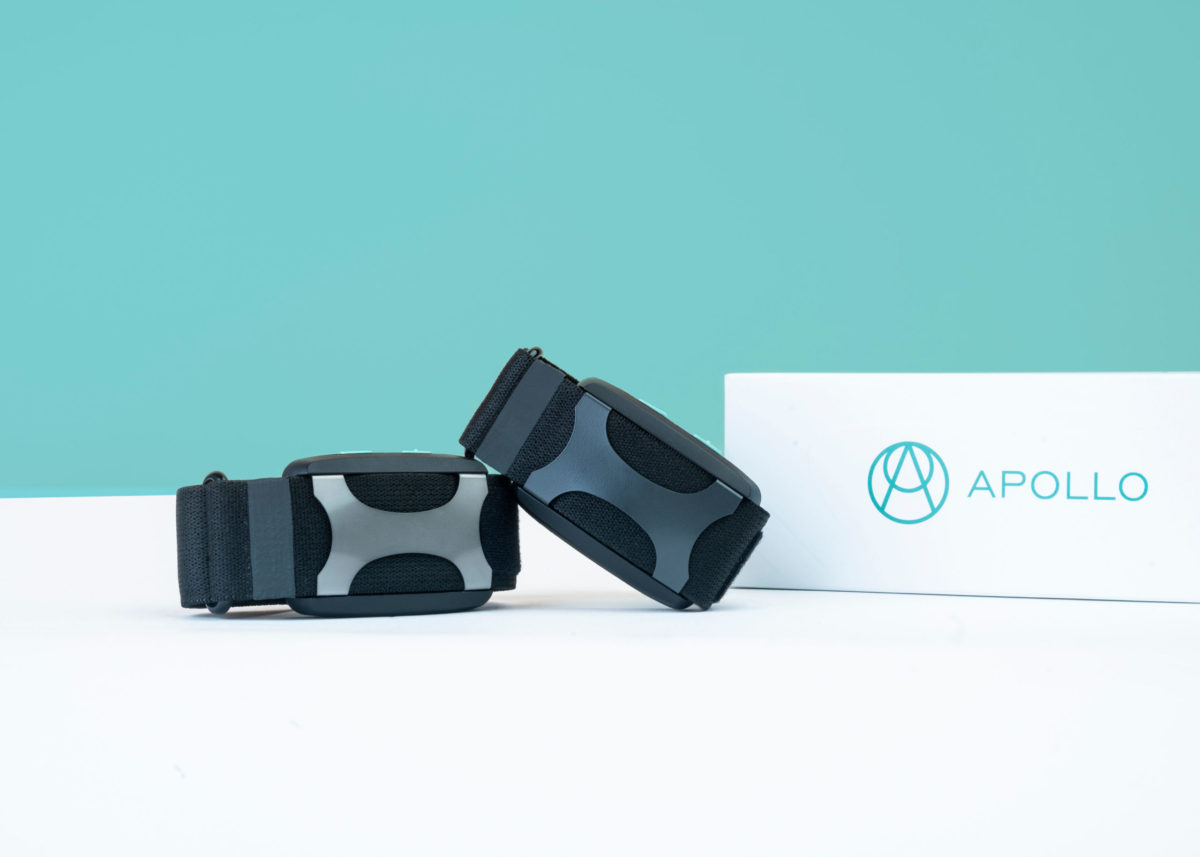The money keeps on rolling in for Pittsburgh startups this quarter.
Consumer health tech startup Apollo Neuro announced today that it had closed a $15 million Series A round. A spinout from the University of Pittsburgh, the startup specializes in the development and sale of a wearable device that uses tactile vibrations to reduce user stress. The latest round, led by Toronto-based investor Noetic Fund, brings Apollo Neuro’s valuation to over $100 million, the company said.
This new funding aligns with “the natural growth of the company,” Apollo Neuro cofounder and CEO Kathryn Fantauzzi told Technical.ly. After fulfilling significant milestones in generating revenue, attracting new users and other goals associated with the startup’s $5 million seed round in June 2020, this new raise will support scaling that success. That means growth in both Apollo Neuro’s product and service offerings and in its team.
“Pittsburgh has such tremendous resources in the health sciences but also in machine learning and in software development,” Fantauzzi said. “And so I’m really excited to continue to be able to tap into the Pittsburgh ecosystem to continue to scale our team to be able to deliver new products and services in 2022.”
The Apollo device’s evolution and early success
Founded in 2018, the technology behind Apollo Neuro’s wearable device, called the Apollo, came out of a foundation of research from neuroscientist and psychiatrist David Rabin, who is now the cofounder and chief innovation officer for the startup.
“I was working with patients who had treatment-resistant mental illnesses like PTSD and depression and they weren’t getting better with the treatments that we had available,” Rabin said. “So it really forced us to ask the question of, is there something we can do better? Or, we have this idea of how to approach PTSD and depression and trauma disorders — maybe the way we’re approaching it is not the whole story.”
Rabin and his research team started to think about the treatment methods they knew worked — holding a support animal, hugging a loved one, listening to soothing music — and look at ways to mimic them.
“So we started to think about ways that we could reproduce that beneficial effect of safety for people on the go and we started to dive into the touch receptor system,” he said. “And so we started to basically map out the entire touch pathway from the skin to the brain and realize that it was very well understood,” and reliably known to imitate the stress-reducing benefits of known treatment methods.
From there, he and Fantauzzi collaborated with the Pitt Innovation Institute to commercialize the success of Rabin’s research, which also connected them to non-dilutive grant funding. As Fantauzzi noted, ventures in the life sciences often struggle to move through the early commercialization process as efficiently as other companies.
So far, the Apollo has been tested and shown success in clinical trials for over 2,000 people and is currently available for sale on the startup’s website as a direct-to-consumer product. With seven modes for relaxation, sleep, focus, recovery, energy, meditation and socializing, the wearable device provides users with customized vibration patterns on their ankles or wrists, driven by the findings in Rabin’s research. Since launching in January 2020, the product’s been getting widely positive reviews from consumer product sites. And an ongoing sleep study shows promising results for an increase in deeper sleep.
What does it mean for Pittsburgh?
This Series A for Apollo Neuro is the latest of a string of investments in the first quarter of this year for Pittsburgh tech, following a $25 million Series A for Metafy, an $11.5 million seed for Mindstate Design Labs, a $70 million Series D for RoadRunner Recycling and most recently, a $73 million Series C for Gecko Robotics. It’s yet another sign that the city is coming back from a paltry amount of venture capital deals in 2021, and on track to better align with national VC activity from tech companies large and small.
Apollo Neuro’s raise also speaks to an increase in life sciences successes over the last year in Pittsburgh as well. While that was most notable with big exits from Cognition Therapeutics and Cernostics last year, startups like Apollo Neuro and Technical.ly RealLIST Startups honoree CytoAgents have also been driving that innovation. And that’s part of the reason Apollo Neuro has plans to stay.
“I think it’s important to recognize that the community in Pittsburgh,” Fantauzzi said. She added that its smaller size made it easier to know everyone in the startup ecosystem who could provide resources in commercialization. “Pittsburgh really roots for Pittsburgh, and that is really helpful when you’re a small team and just starting out, that people are willing to lend you a hand and introduce you to people and help you grow.”
Sophie Burkholder is a 2021-2022 corps member for Report for America, an initiative of The Groundtruth Project that pairs young journalists with local newsrooms. This position is supported by the Heinz Endowments.Join our growing Slack community
Join 5,000 tech professionals and entrepreneurs in our community Slack today!
Donate to the Journalism Fund
Your support powers our independent journalism. Unlike most business-media outlets, we don’t have a paywall. Instead, we count on your personal and organizational contributions.

Honeycomb Credit seeks $3M, acquires fellow crowdfunding platform IFundWomen

West Virginia ranks last in innovation. Meet the people trying to change that.

How do H-1B visas work? Here’s everything you need to know


